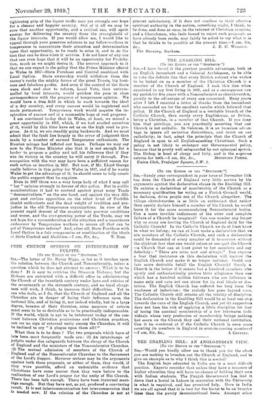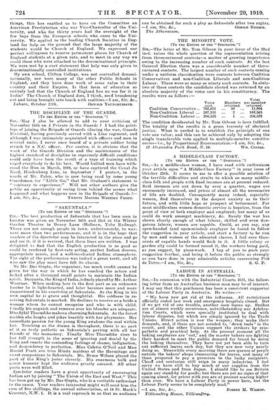THE ENABLING BILL: AN ANGLO-INDIAN VIEW. [To Ins EDITOR OF
THE " SPECTATOR."' SIR,—Would you kindly allow me to thank you for the effort you are making to broaden out the Church of England, and to give an example as to why I think this is needed?
The English boys educated in India are in a most difficult position. Experts consider that unless they have a measure of higher education they will have no chance of holding their own with Indian students. The Punjab Government has laid it down that a hostel in Lahore in connexion with the University is what is required, and has promised help. Here in India we are all agreed that it is best for the hostel to be on broader lines than the purely denominational basis. Amongst other things, this has enabled us to have on the Committee an American Presbyterian who was Vice-Chancellor of the Uni- versity, and who for thirty years had the oversight of the few boys from the European schools who came to the Uni- versity. We applied to the leading Church Societies in Eng- land for help on the ground that the large majority of the students would be Church of England. We expressed our perfect willingness to reserve permanent places for Church of England students at a given rate, and to meet in any way we could those who were attached to the denominational principle. We were met by a curt statement that help was only given to denominationally controlled institutions.
My own school, Clifton College, was not controlled denomi- nationally, nor were many of the other Public Schools in England, and they have done work of some value to their country and their Empire. Is that form of education so entirely bad that the Church of England has no nse for it in India? The Church of England does, I think, need broadening out and being brought into touch with realities.—I am, Sir, &c.,











































 Previous page
Previous page